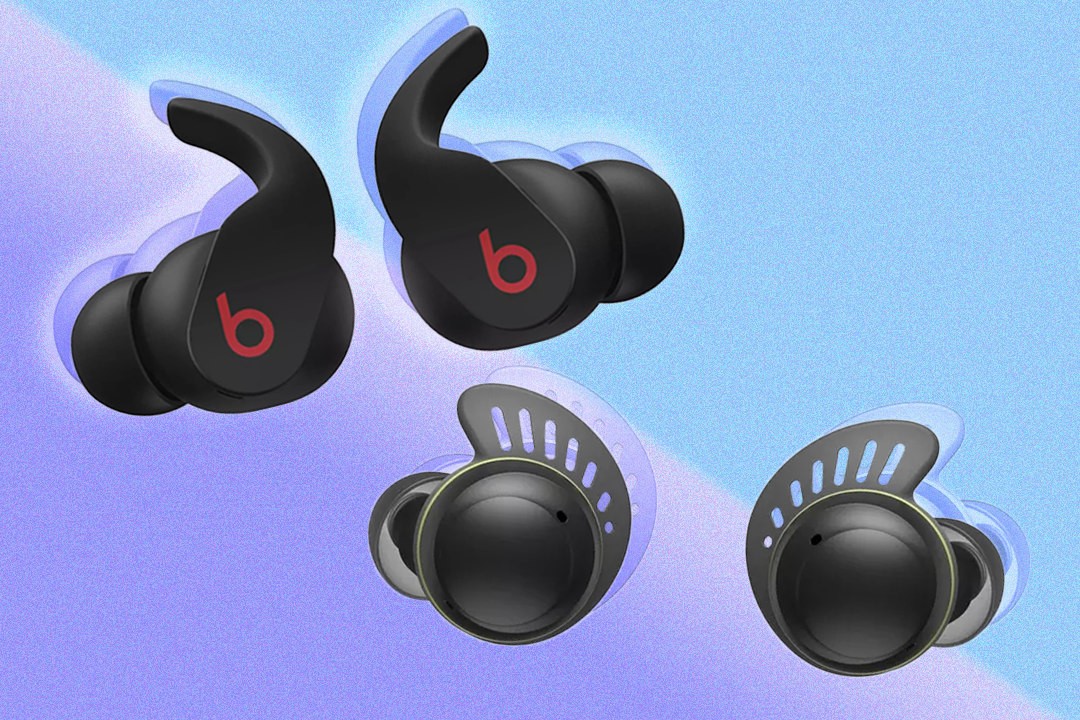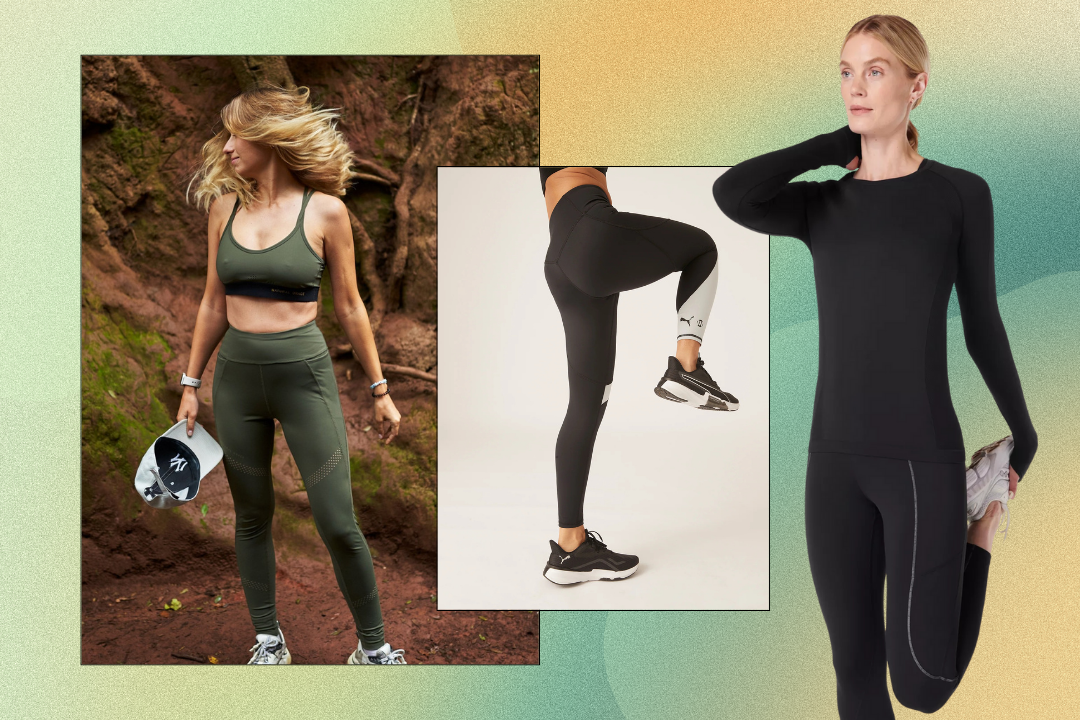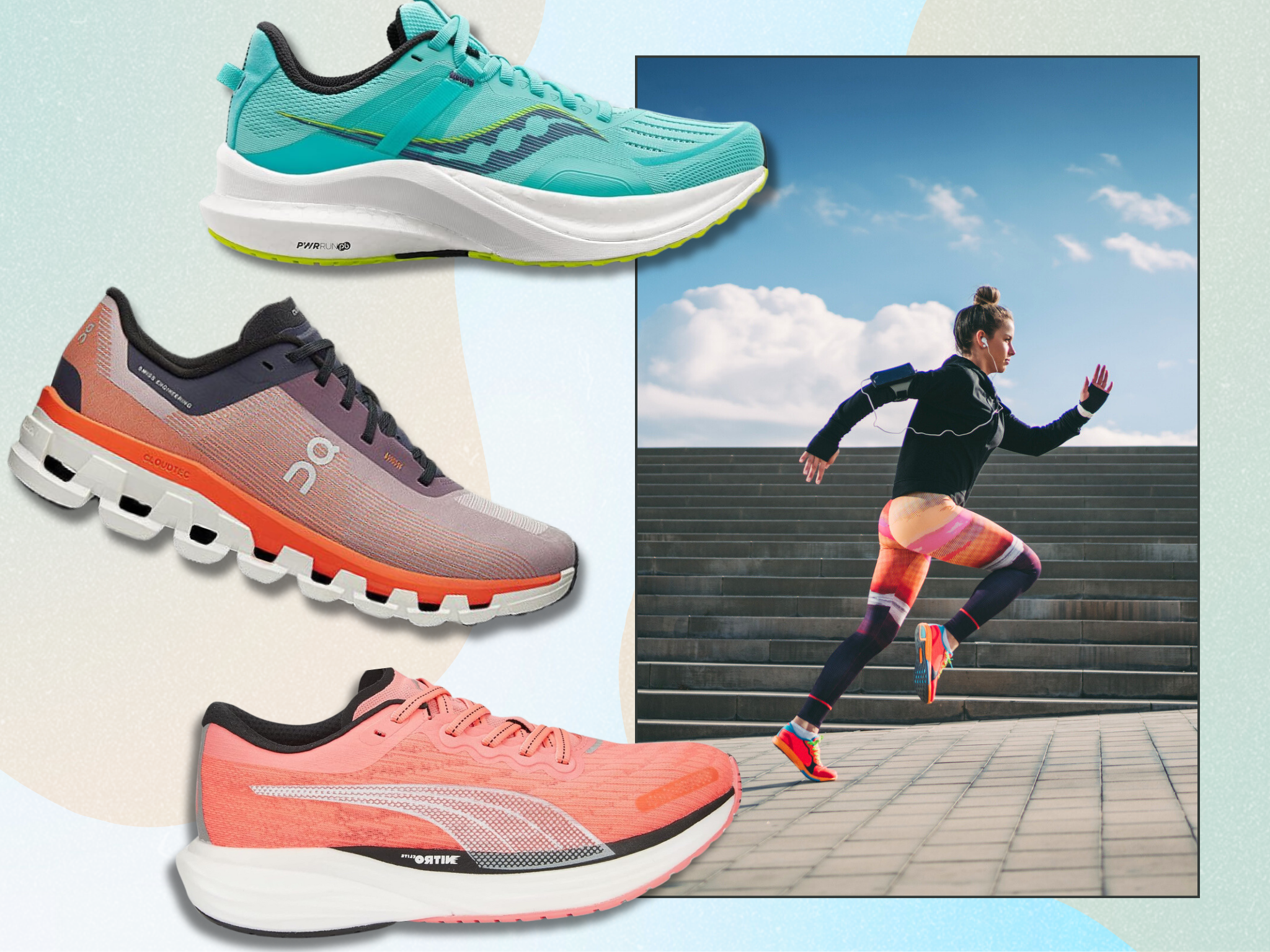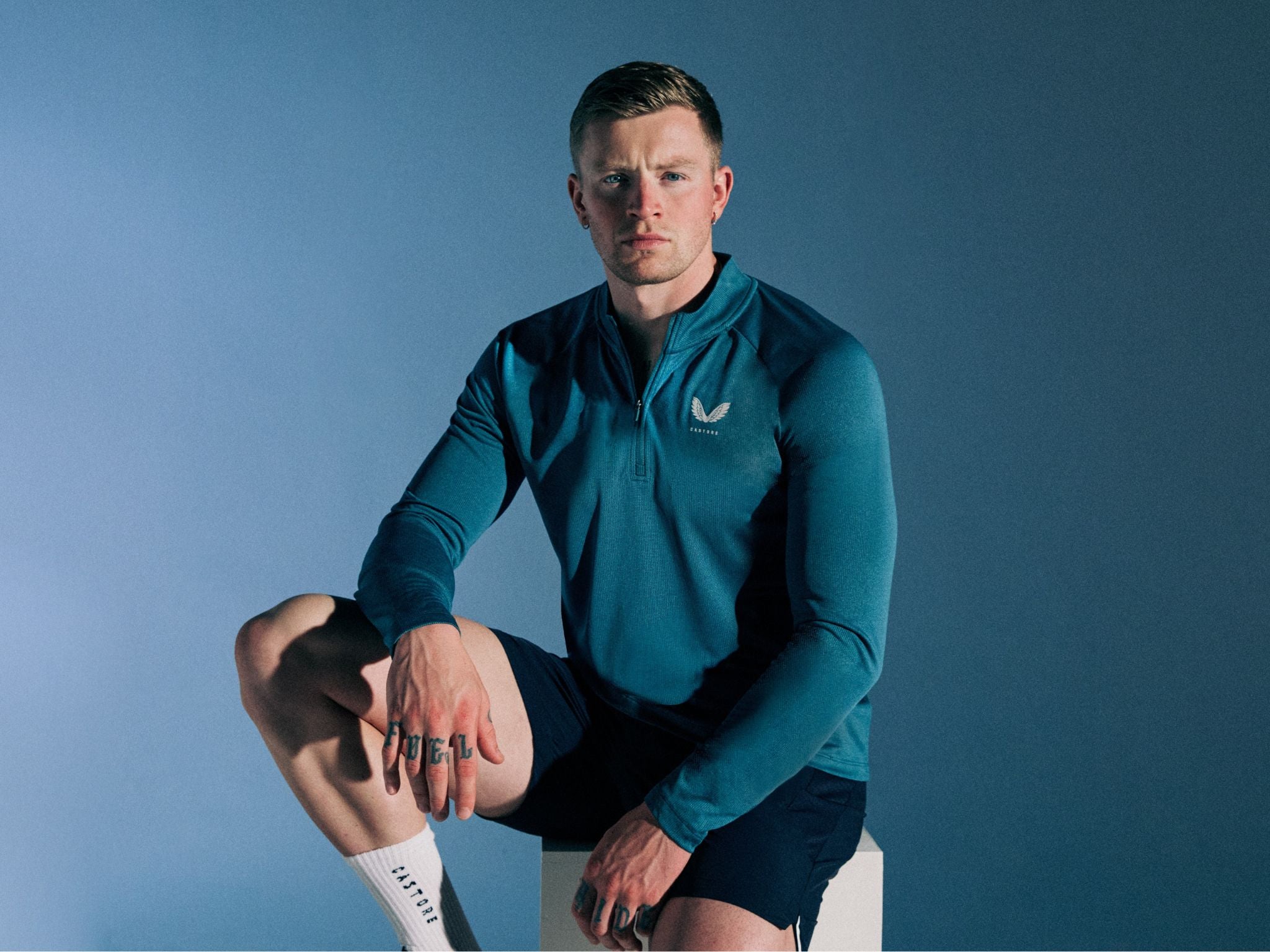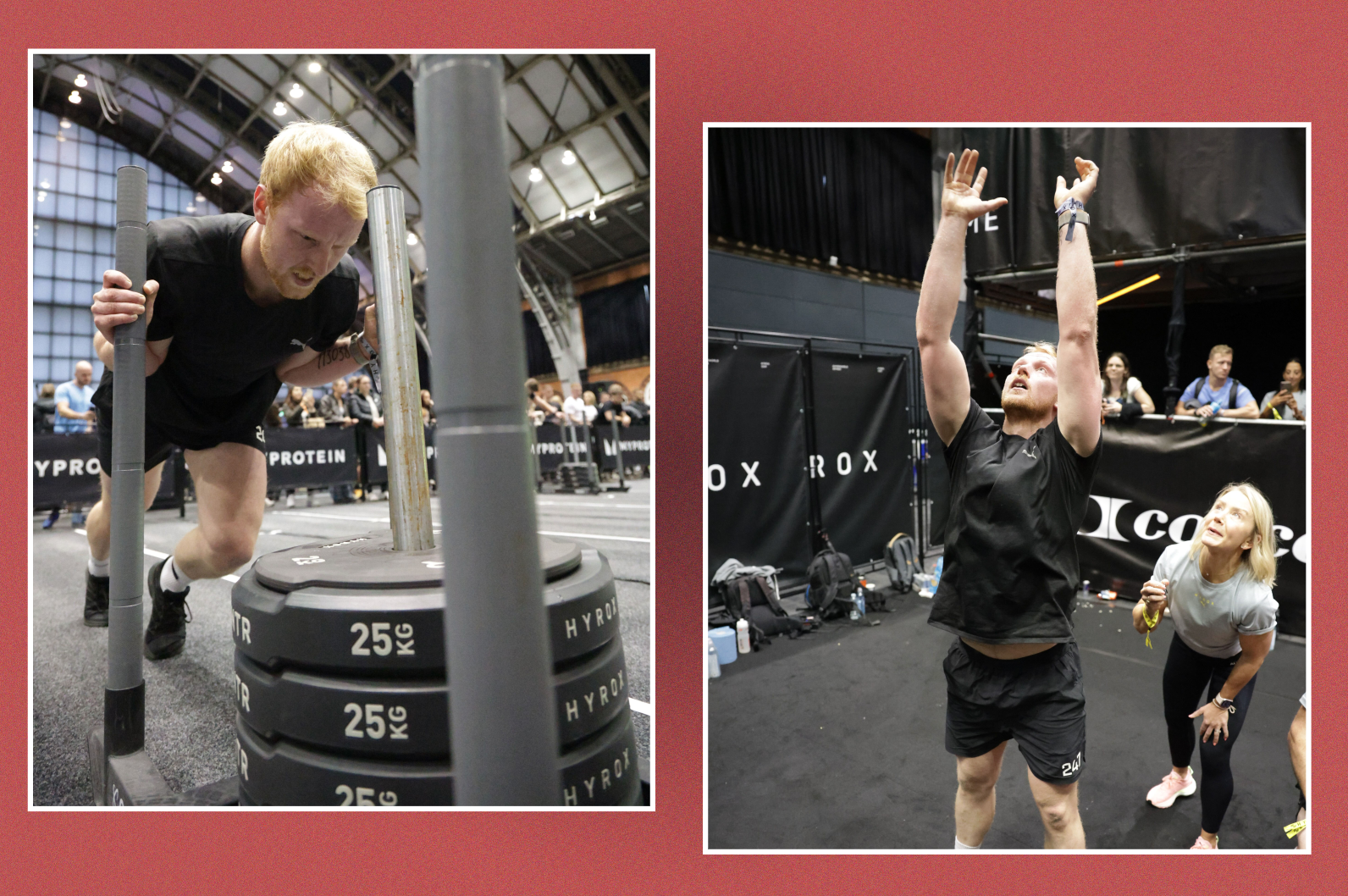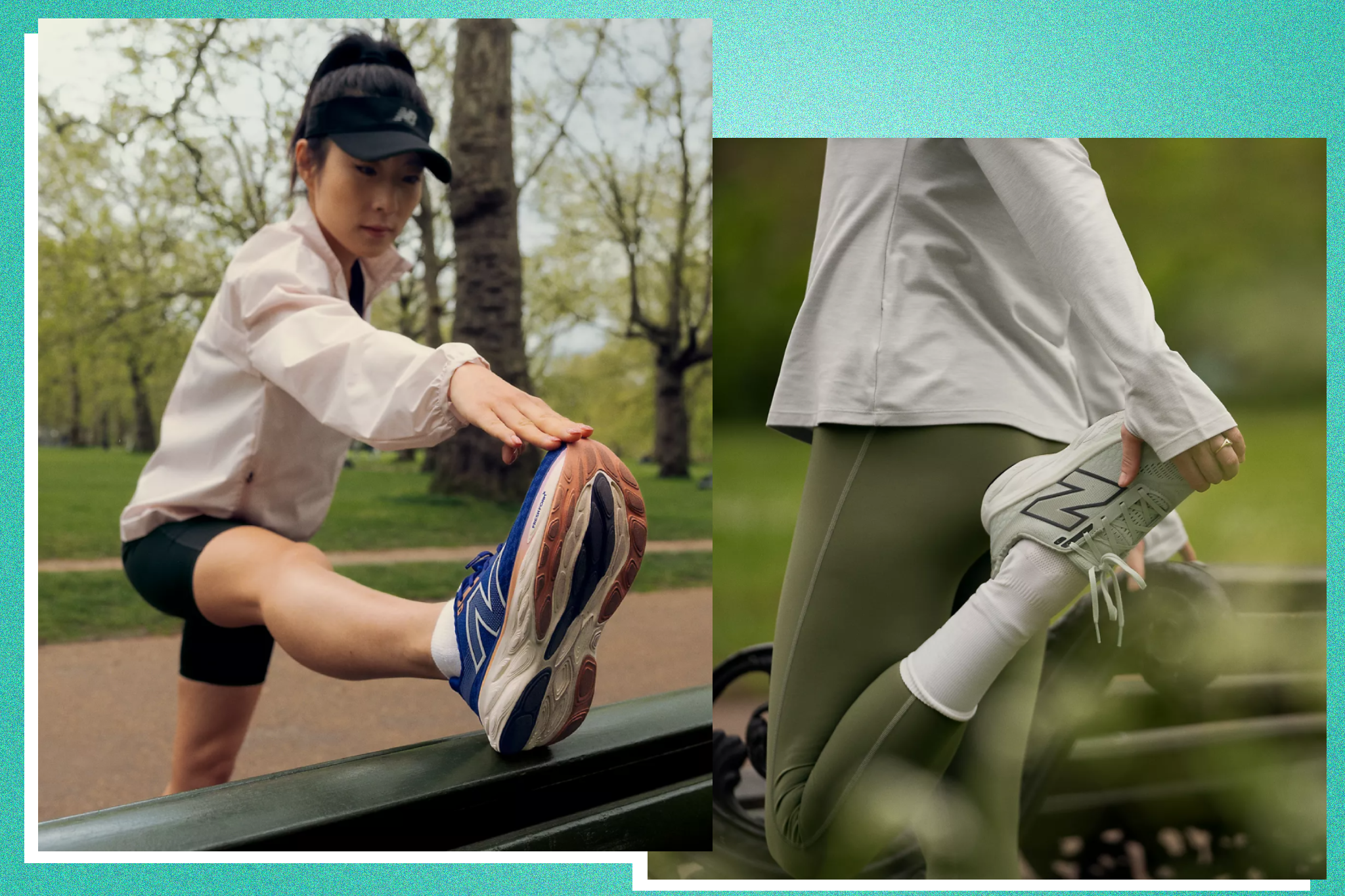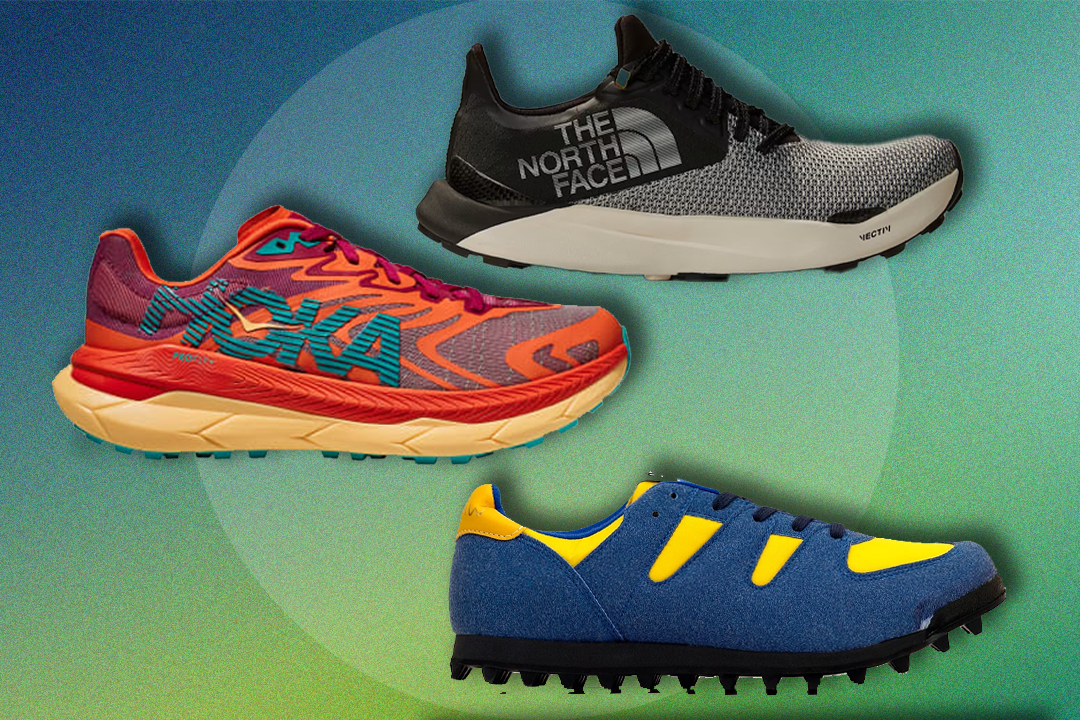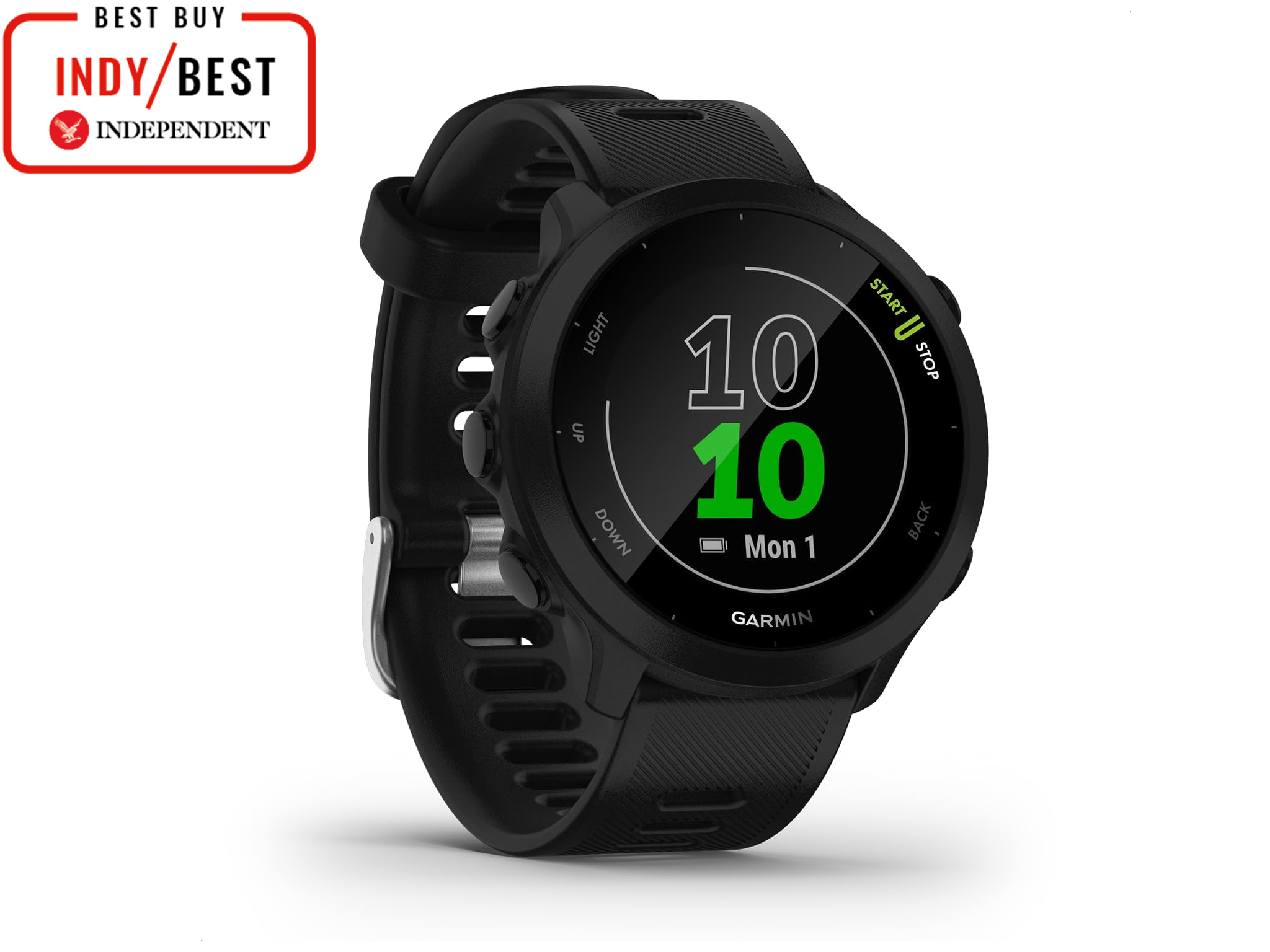
The Independent's journalism is supported by our readers. When you purchase through links on our site, we may earn commission. Why trust us?
12 best running watches to help you improve speed and endurance
Your next PB is just a step away with these wrist-based data monitors
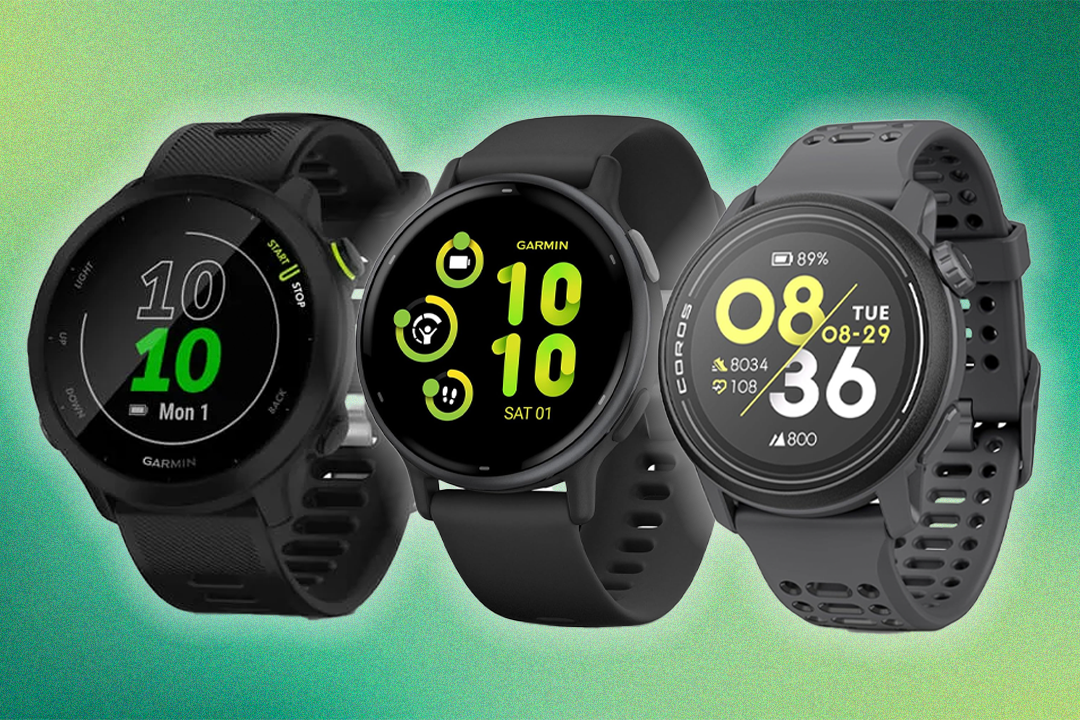
If you’d like to get better at running but struggle with the motivation to put on your trainers and actually do it, a running watch could really help.
Tracking speed, distance and heart rate will give you an indication of progress over time, which can be addictive. Some watches can be synced to an app, where you can access guided training plans to coach you to run longer distances or improve your 5k time. Sharing your data with a third-party app like Strava, where you can connect with friends, will keep you accountable as you’ll have others to check up on you.
If you’re already a seasoned runner and struggling to move from a plateau, using advanced features such as cadence and ground contact time can help you adjust your running technique to improve your personal best without expending too much extra effort. Think: running smarter not harder.
To help you navigate the running wristwear jungle and find the right watch for your needs, we’ve tested out some of the most well-known brands across all price ranges. Keep reading for those that came out tops during our tests.
How we tested
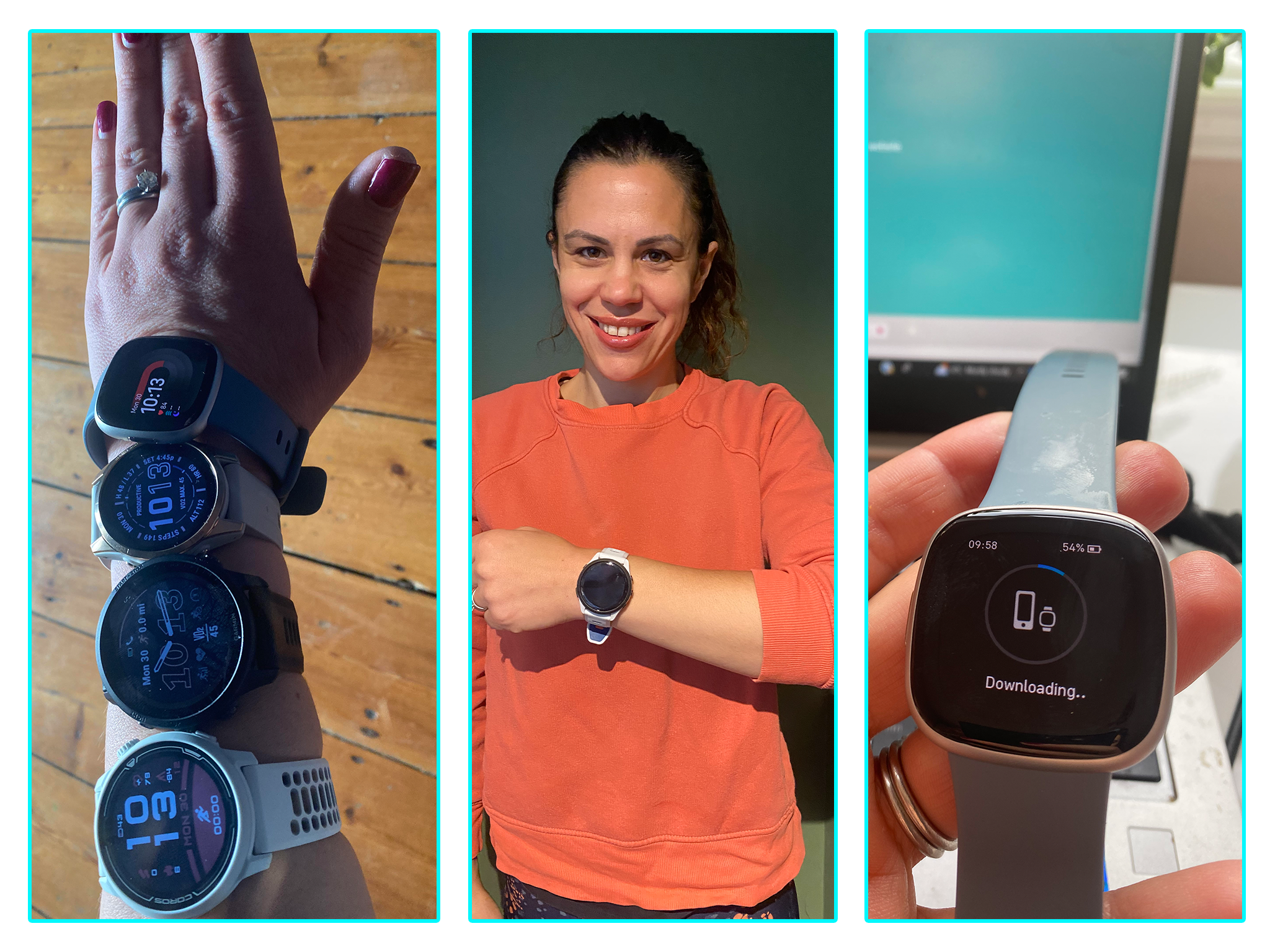
With a couple of marathons on the cards, training has started, meaning ample opportunity for testing running watches in different scenarios. We tested each running watch over long, slow runs of at least 10 miles as well as for interval sessions around the track, hill runs and our local Park Run.
Before testing each watch, we spent time exploring what it could track and synced it to both an Apple and an Android phone to see how easy it was to use. We rated each watch on features like screen visibility, accuracy of GPS, app support, recovery guidance and comfort on the wrist. We also tested the watch in daily life, assessing how it looked and felt over 24 hours.
The best running watches for 2024 are:
- Best overall – Garmin forerunner 55: £129, Amazon.co.uk
- Best budget buy – Fitbit inspire 3: £59.99, Currys.co.uk
- Best for a clear display – Google Pixel watch 3: £399, Very.co.uk
- Best value for money – Garmin vivoactive 5: £199, Amazon.co.uk
- Best for battery life – Coros pace 3: £219, Amazon.co.uk
Garmin forerunner 55

- Best: Overall
- Weight: 37g
- Battery Life: 20 hours in GPS mode / two weeks in watch mode
- Screen size: 26.3mm
- Why we love it
- Good value
- Clear display
- Easy to use Garmin Coach
- Take note
- Bulky
- Only available in black
Although this is one of Garmin’s more budget-friendly options, it’s packed with premium features to help boost a user’s performance in a number of different sports. This versatile wearable can track activities such as swimming and cycling to improve your cardiovascular fitness, which would have a positive benefit on running.
We were impressed by the Garmin coach feature, which offers free 5k, 10k and marathon training plans you can follow on the screen. Rather than pay for a physical coach or PT in the park with you, blowing their whistle when it’s time to shake up the pace, the watch guides you through each session, providing pace suggestions, reminders, and encouragement. Even smarter is that we found this training plan adjusted dynamically based on our performance. We once missed a workout and the app adapted the next planned session to help us ease back into it.
While the screen is on the large side for daily wear, it’s excellent for exercise. It offers crystal-clear visibility in various lighting conditions, including bright sunlight and low light. An always-on screen means that we were able to quickly glance at stats without needing to slow down to press any button or twirl any knobs.
Fitbit inspire 3
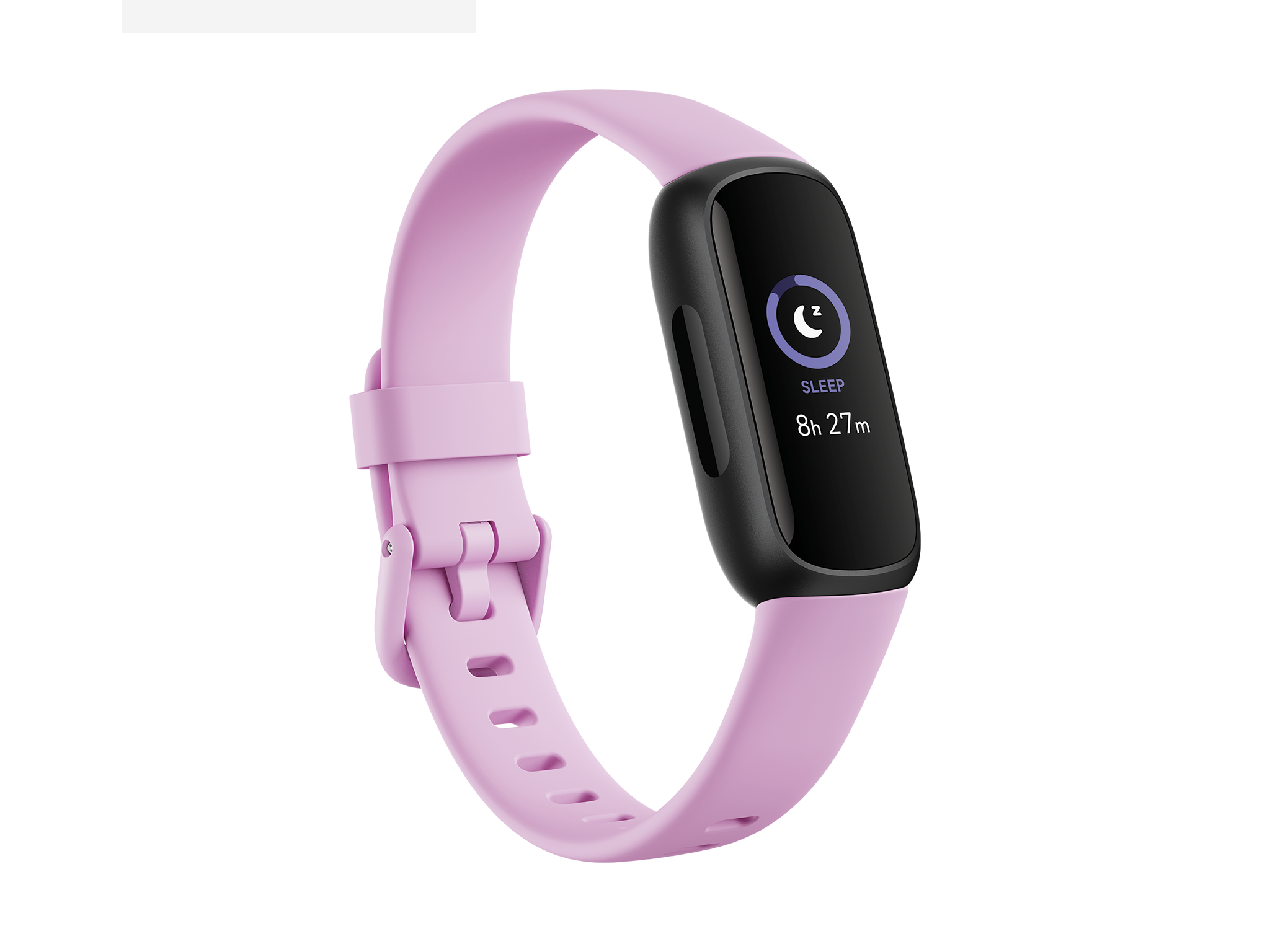
- Best: Budget buy
- Weight: 21.3g
- Battery: 10 days
- Screen size: 55mm
- Why we love it
- Great for newbies
- Affordable
- Gives you info in real time
If you’re new to running, you really cannot beat this £80 Fitbit. For Park Runners and those training for 10k or half marathon races, it’s all you need to track heart rate, pace and calorie burn in real time as you run.
Technically it’s an activity tracker rather than a smart watch but Bluetooth functionality will allow you to broadcast text message and social notifications from a nearby phone to the inspire 3’s screen so you don’t miss anything important while you are pounding the pavement. We also like the slimline design that looks unassuming on the wrist so you can wear it with formal dress as well as sports kit and not feel like the watch is running the lines of your outfit.
Despite the small size of the screen, it’s easy to read thanks to the colour OLED display. This screen is also waterproof up to 50 metres so you can swim in it too. And let’s just say, we were surprised that such an affordable watch also gave us SPO2 scores so we could see oxygen circulation as well daily scores that showed how hard we could exercise that day or how well we were managing stress.
Polar pacer pro
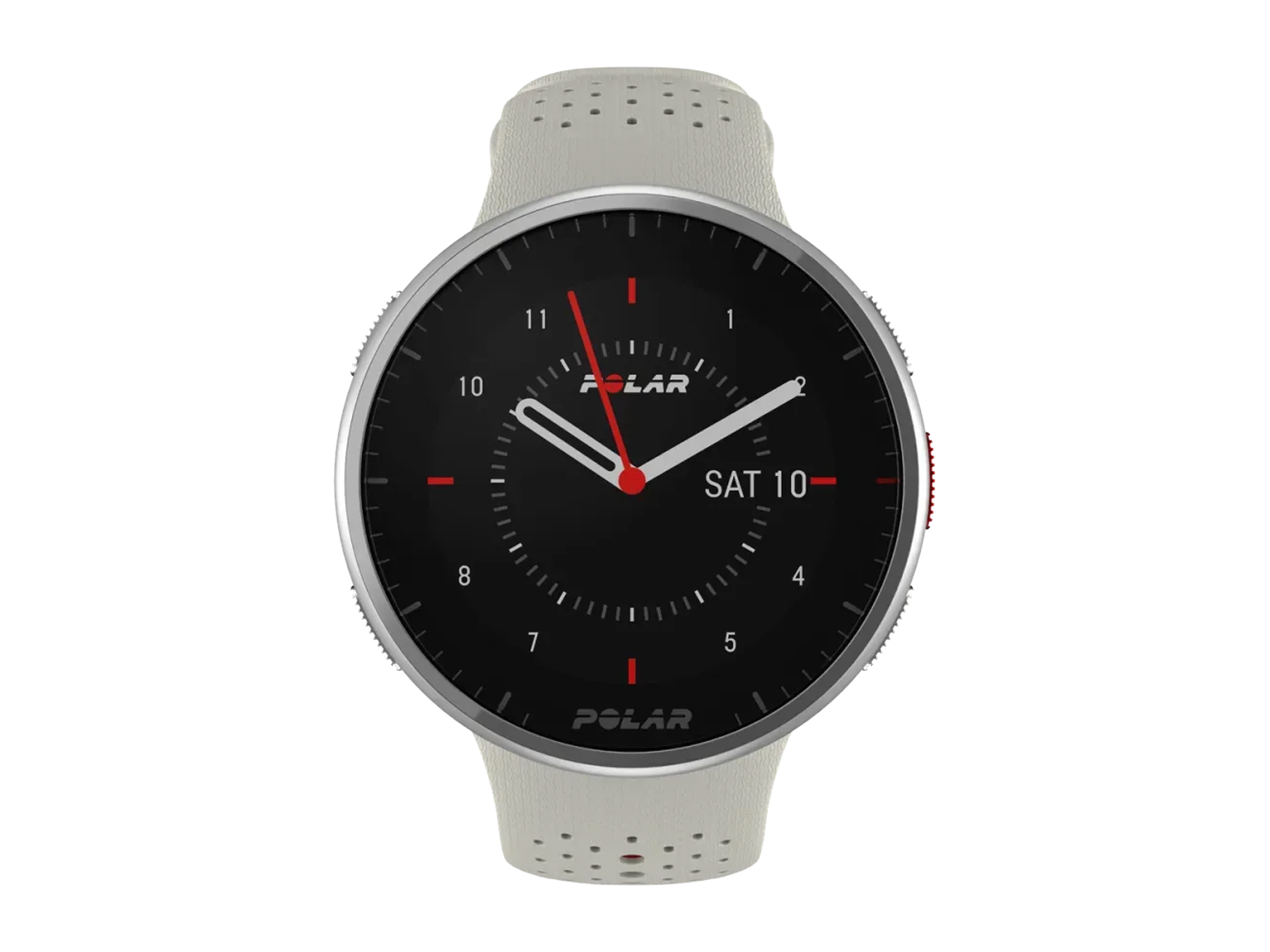
- Best: For improving running technique
- Weight: 40.8g
- Battery life: 35 hours in training mode / 7 days in watch mode
- Screen Size: 30.5mm
- Why we love it
- Fuelling recommendations
- Training analysis
- Personalised coaching
- Take note
- Limited internal memory
The Polar Pacer pro is a serious tool for runners of all abilities looking to level up at an impressively competitive price. With its onboard GPS, it can keep track of your runs, delivering accurate information on pace, distance, cadence, elevation, running power, and more in the Polar Flow app. And all for around half the price of a comparable Garmin watch.
We found the screen easy to read thanks to the watch’s reflective colour display that meant we didn’t have to squint to read the numbers. But our favourite feature by far, is that we found this the best watch for motivating you to go that little bit harder with coaching detail and rich training analysis. From the watch itself you can access FuelWise smart fuelling recommendations, Strava live segments and four different fitness tests. As for recovery, it’s able to break down sleep stages and tell you how long you’ve slept for with additional insights into sleep continuity and sleep regeneration based on the amount of REM sleep managed.
The only reason it loses half a star is because we enjoy running with music and the Polar Pacer pro isn’t quite there just yet. It can control the music on your phone, so there’s no need to use your handset during runs, but it can’t store tracks on internal memory.
Garmin forerunner 955 solar
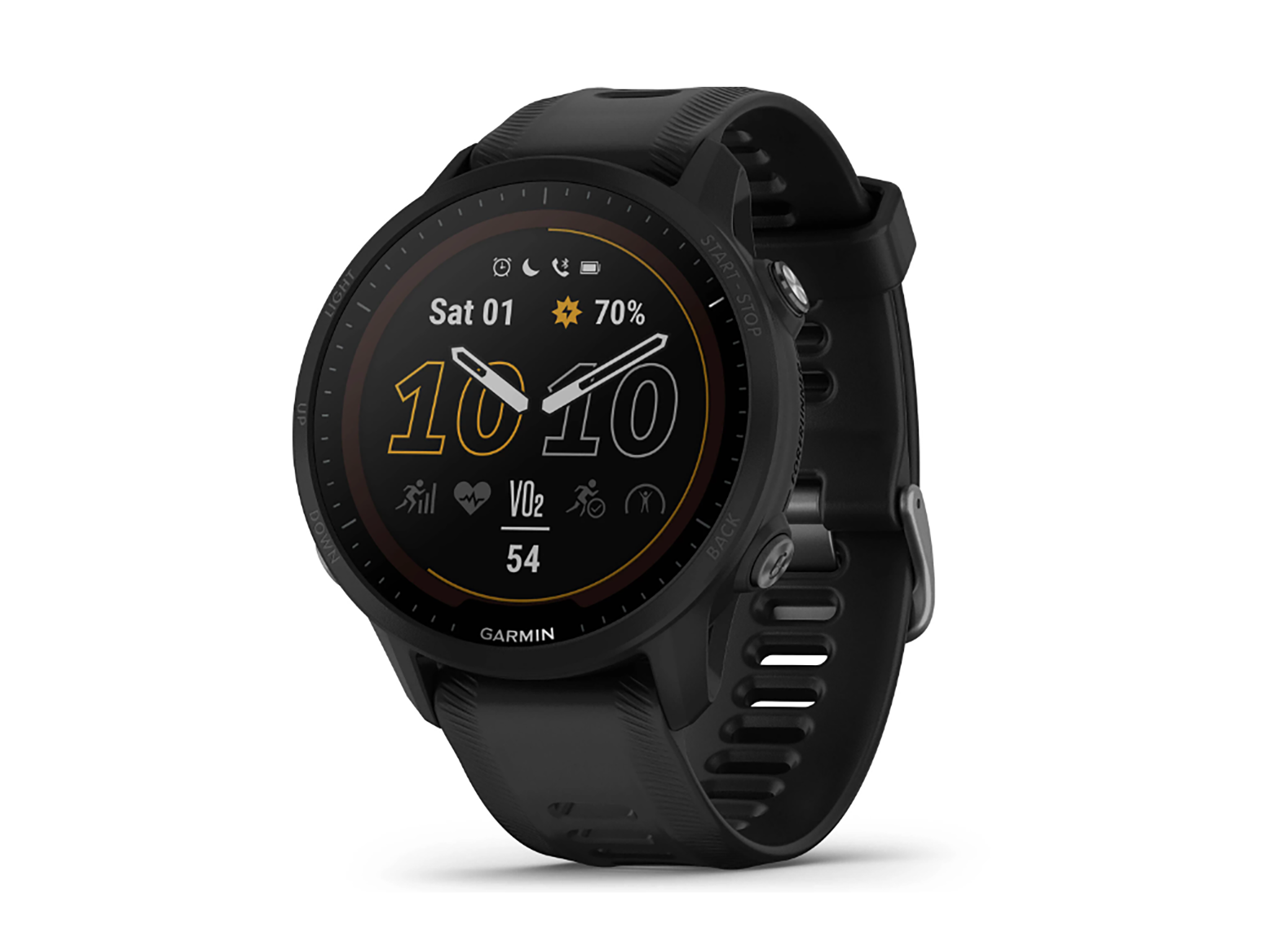
- Best: For accuracy
- Weight: 52g
- Battery life: 49 hours in GPS mode / 20 days in smart watch mode
- Screen size: 33mm
- Why we love it
- Solar charging
- Touch screen
- Take note
- Quite bulky and heavy
For accuracy, reliability and durability, you cannot fault a Garmin watch. We’ve tested several models over the past 15 years and always found they helped massively with pacing and post-run insights through the Garmin Connect app. We’re also a big fan of the Connect’s training plans that allow you to select pre-designed running, cycling or triathlon plans developed by the world’s top coaches at various experience levels. You can choose 5k, 10k, half marathon, and marathon along with getting started or improving fitness options and these will be sent to your watch so you get daily reminders to complete your workouts.
As we already had Garmin Connect, setting up the forerunner 955 solar took just a couple of minutes and that included being given tips about what the watch could do. One of the most impressive features, especially for those who like to try new routes or run on trails, is the live mapping feature. Whether you’re running on pavements in the city or out in the wild, the watch provides full-colour, built-in mapping to keep you on track.
It also has a touch screen which adds to ease of navigation and is brilliant for reading text and social media notifications. We had fun playing with the solar charging feature, which works best if you’re doing longer runs or cycling rides of more than an hour. If you’re not outside enough to maximize the solar charging capacity, a short 30-minute charge gets you back up to 50 per cent of battery life if you’re running low.
Fitbit versa 4
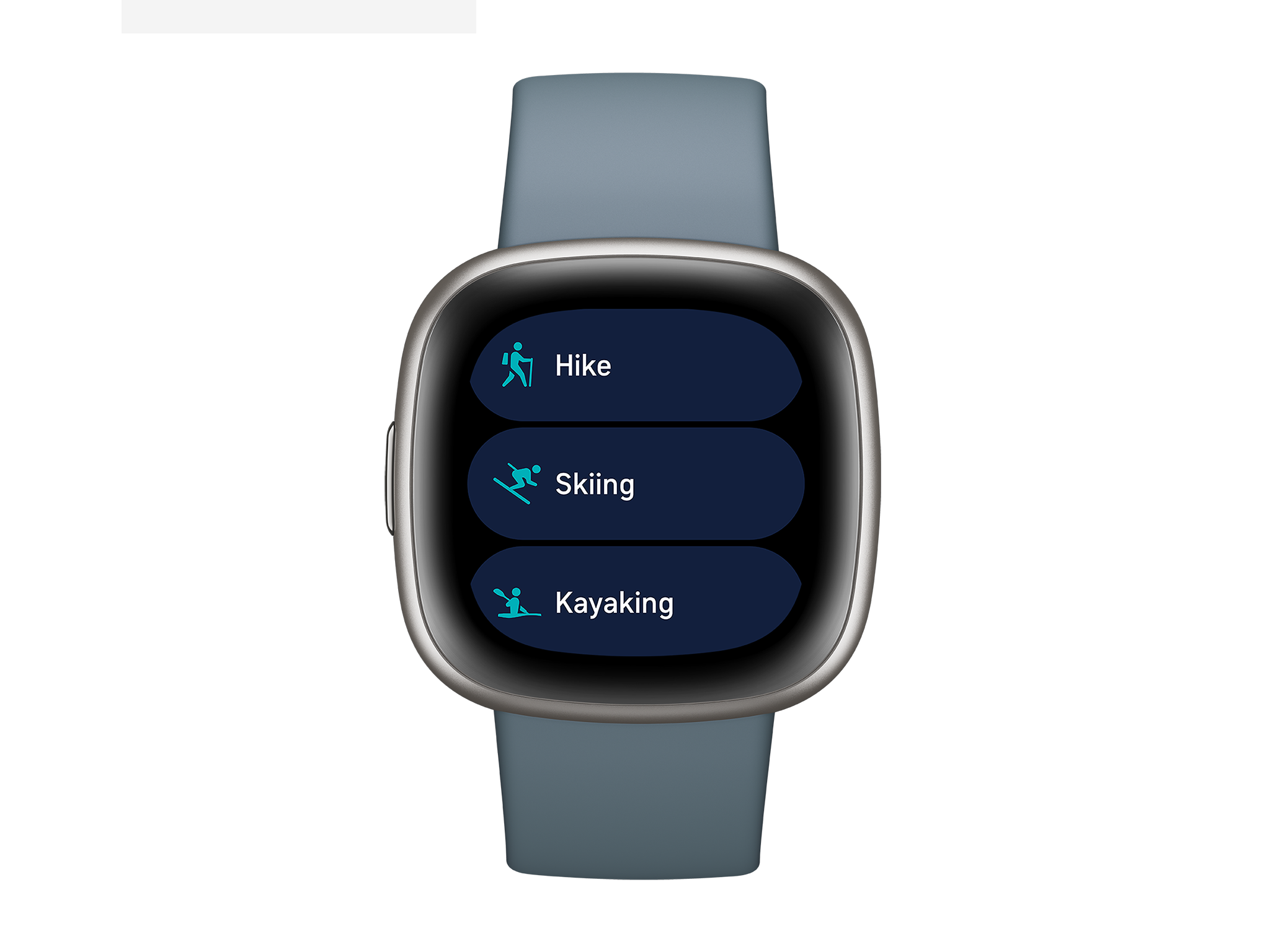
- Best: For simplicity
- Weight: 40g
- Battery life: Two days in always-on mode / 6 days in auto display shut-off mode
- Screen size : 33.6mm
- Why we love it
- Amazon Alexa voice commands
- Streamline design
- Clear screen
- Take note
- No wi-fi compatibility
- Can’t play music
If you’re looking for a watch that’s simple to use, the Fitbit versa 4 shows all your key fitness statistics in large font on its 40.5mm square screen with gently curved edges. Data available includes heart rate, temperature tracking, cardio fitness and daily readiness scores as well as steps counted. Like the Apple watch, it will nudge you to get up if it notices periods of inactivity, and it offers continuous heart rate data through Fitbit’s purepulse optical heart rate sensor. This includes heart rhythm so you can be forewarned of heart activity that could signify a serious health issue.
Amazon Alexa is also built-in and we enjoyed talking to the watch to set alarms and check the weather before we left the house to decide on appropriate running kit. Having a daily readiness score that tells you if you have sufficiently recovered from the last session is useful, but it can also be annoying if you have a busy lifestyle and just want to run to relieve some stress.
Overall, it’s a stylish watch that’s not too bulky, has an easy-to-read screen and will answer questions through Amazon Alexa. But it does not have wifi compatibility, nor can it play music directly from the watch, so you’ll still need to take a phone out with you to run with tunes.
Garmin fenix 7s
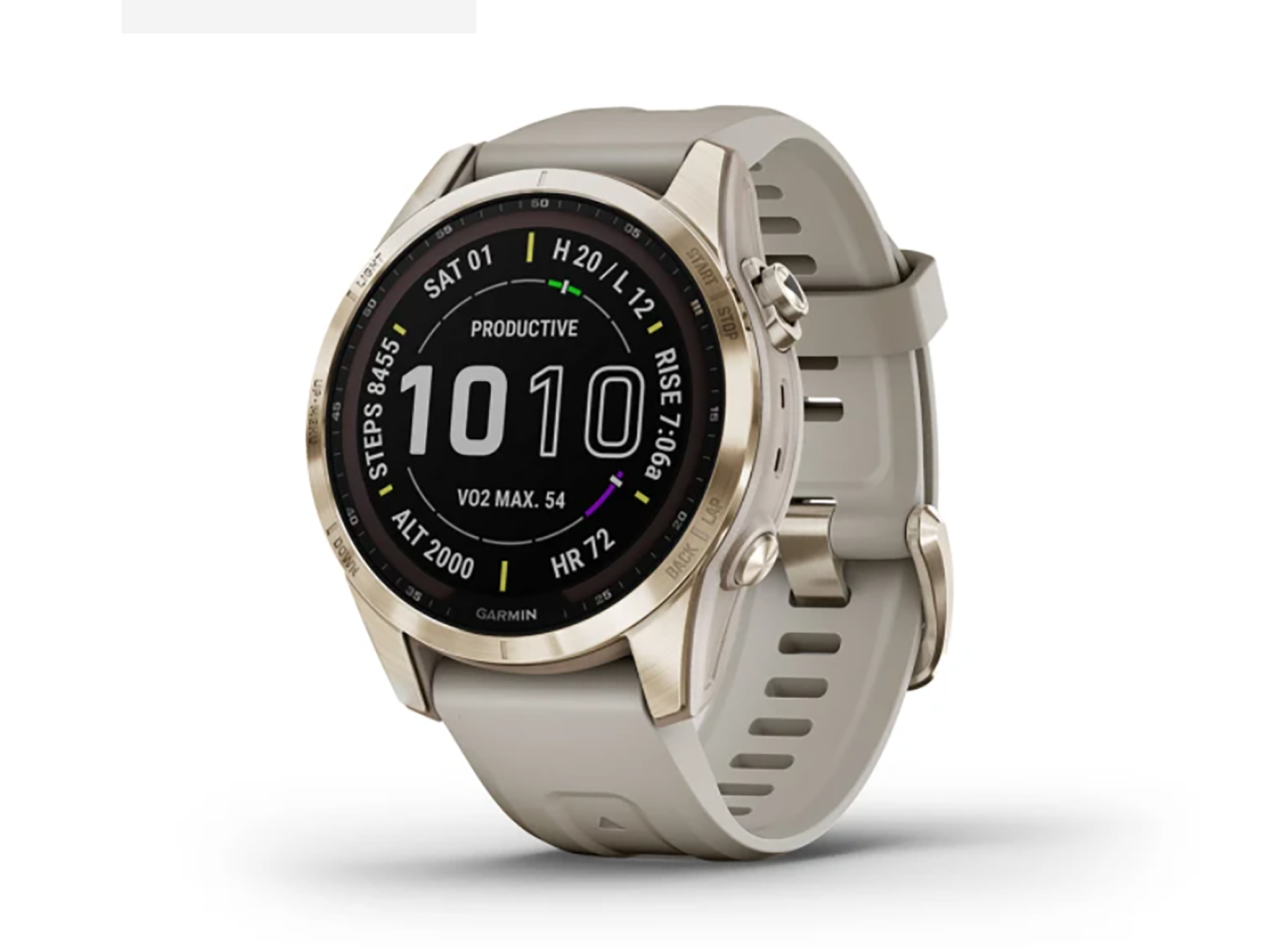
- Best: For competitive athletes
- Weight: 58g
- Battery life: 30 hours in GPS mode / 14 days in smart watch mode
- Screen size : 42mm
- Why we love it
- Built-in music storage
- Analysis of training sessions
- Take note
- Expensive
The Garmin fenix 7s sapphire solar is the most visually attractive Garmin we’ve ever had the pleasure of putting on our wrist. Although it has five side buttons for old-school users, it also has a touchscreen which is fast and responsive. If you need to use a map during your run, you can use the screen to zoom in to find out exactly where you are and how long its going to take you to get home. And thanks to the solar-charge feature, you never have to worry about it dying mid-run.
We enjoyed testing the pace pro feature, which enables you to upload routes and have the fenix 7S guide you to a target time, telling you when you’re going too fast and when you can push harder. But it was after a run that we really appreciated what this watch had been recording. After every session, you can see data such as estimated sweat loss, cadence, calories, and time spent in heart rate zones. We could track our progress with VO2 Max and training effect figures and recover smarter with analysis of weekly training load and recovery time.
Admittedly, it’s an investment item but it does offer a lot of data in a stylish package. And if you enjoy other activities including cycling, swimming, bouldering, golf, surfing, parachuting, elliptical training or yoga, it can offer sport-specific insights to make you better at everything you try. We also approved of the watch’s music storage capability as the built-in music player offers room for up to 2,000 songs. There’s also offline playlist support for premium-level Spotify, Deezer, or Amazon Music.
Read our full review of the Garmin fenix 7 and epix smartwatches
Samsung Galaxy watch 5 pro
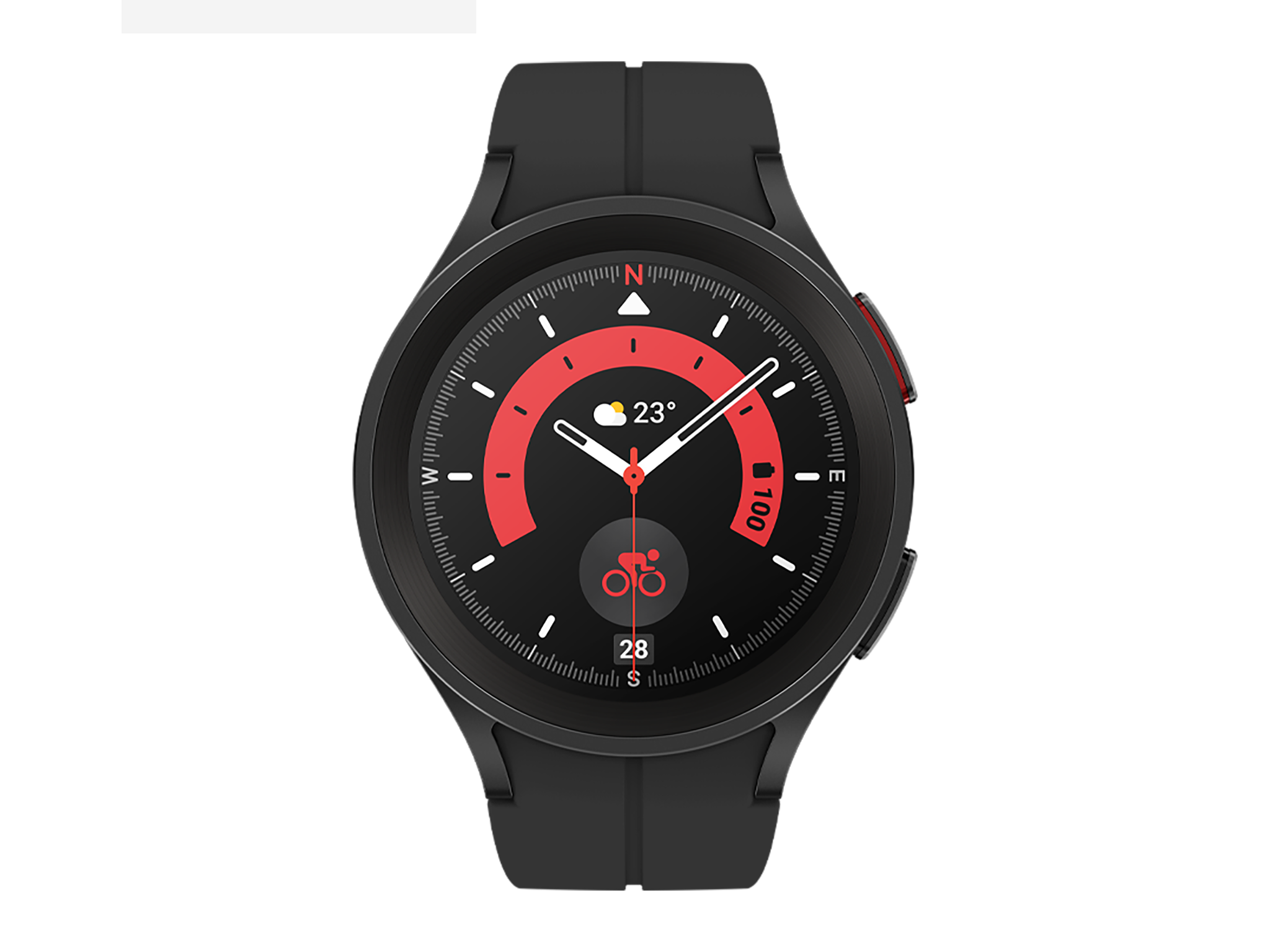
- Best: For Android users
- Weight: 46.5g
- Battery life: 20 hours with GPS / 80 hours in smart watch mode
- Screen size: 34.6mm
- Why we love it
- Automatic tracking
- Analyses running technique
- Suggests training improvements
- Take note
- Not compatible with Apple
Solid and functional, the Samsung Galaxy watch 5 pro has a rugged exterior with sapphire crystal glass and titanium casing built to take on adventures. That said, where this watch really shines is in its smart features such as the ability to take calls, send and receive messages and offer third party apps in its in-built app store. Google Assistant is enabled so you can say ‘Hey Google’ to make calls, send messages, set timers, get the weather forecast, check your calendar and more. Apps you can download via the Play store include Strava, YouTube music, Spotify and the meditation app, Calm.
We liked that you can head straight out the door with this without having to wait for a GPS signal. The Samsung Galaxy watch 5 pro can automatically detect and begin tracking walking, running, elliptical, rowing, swimming, and dynamic high-movement activities. After 10 minutes of starting one of these activities, the watch will alert you that it’s tracking the workout. When you stop, the watch will automatically stop tracking, too.
On an Android phone, the Samsung Health app is easy to use, showing you your day at a glance and offering some visually attractive graphs to look at. It can also explain your running metrics and tell you what to improve on by indicating if your asymmetry, flight time, vertical osciallation and regularity are good or great or show room for improvement.
Overall, we’d recommend the Galaxy watch 5 pro to all Android users but it’s a shame that it’s not compatible with iOS so you can’t use it with an iPhone.
Polar pacer
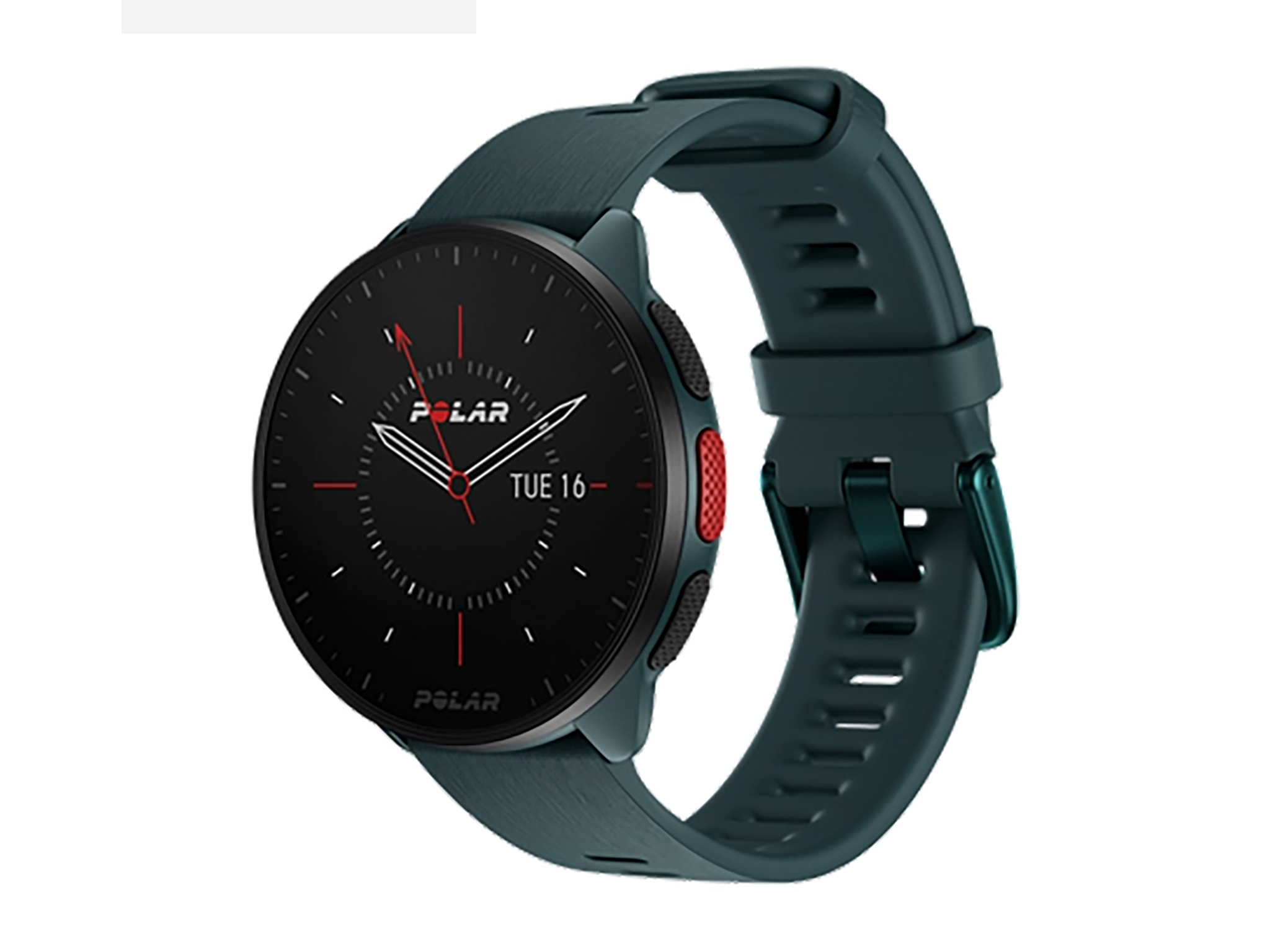
- Best: For an intuitive interface
- Weight: 40g
- Battery life: 35 hours in activity tracking mode / 100 hours in data-saving mode
- Screen size: 30mm
- Why we love it
- Great entry-level pick
- Intuitive
- It’s easy to sync with the Polar Flow app
The Pacer is the entry-level running watch made by Finnish brand Polar but it offers just the right amount of features for anyone wanting fast, easy access to key metrics. In fact, we’d go so far as to say that the Polar pacer is the simplest, most intuitive watch screen to navigate as you’re not bombarded by too many numbers or data insights.
The main screen contains heart rate, distance, pace and duration. Toggle through other screens and you’ll see elevation, more detailed heart rate metrics, music controls and Strava Live segments – this is extra handy if you’re aiming to be a Strava local legend or want to compare your performance over a specific route.
It’s easy to sync with the Polar Flow app on any smartphone to offer more detailed insights, offer training programs and monitor sleep and recovery. This app is enjoyable to use and is compatible with the Apple Health app too, so you can choose where to look at your stats.
Google Pixel watch 3
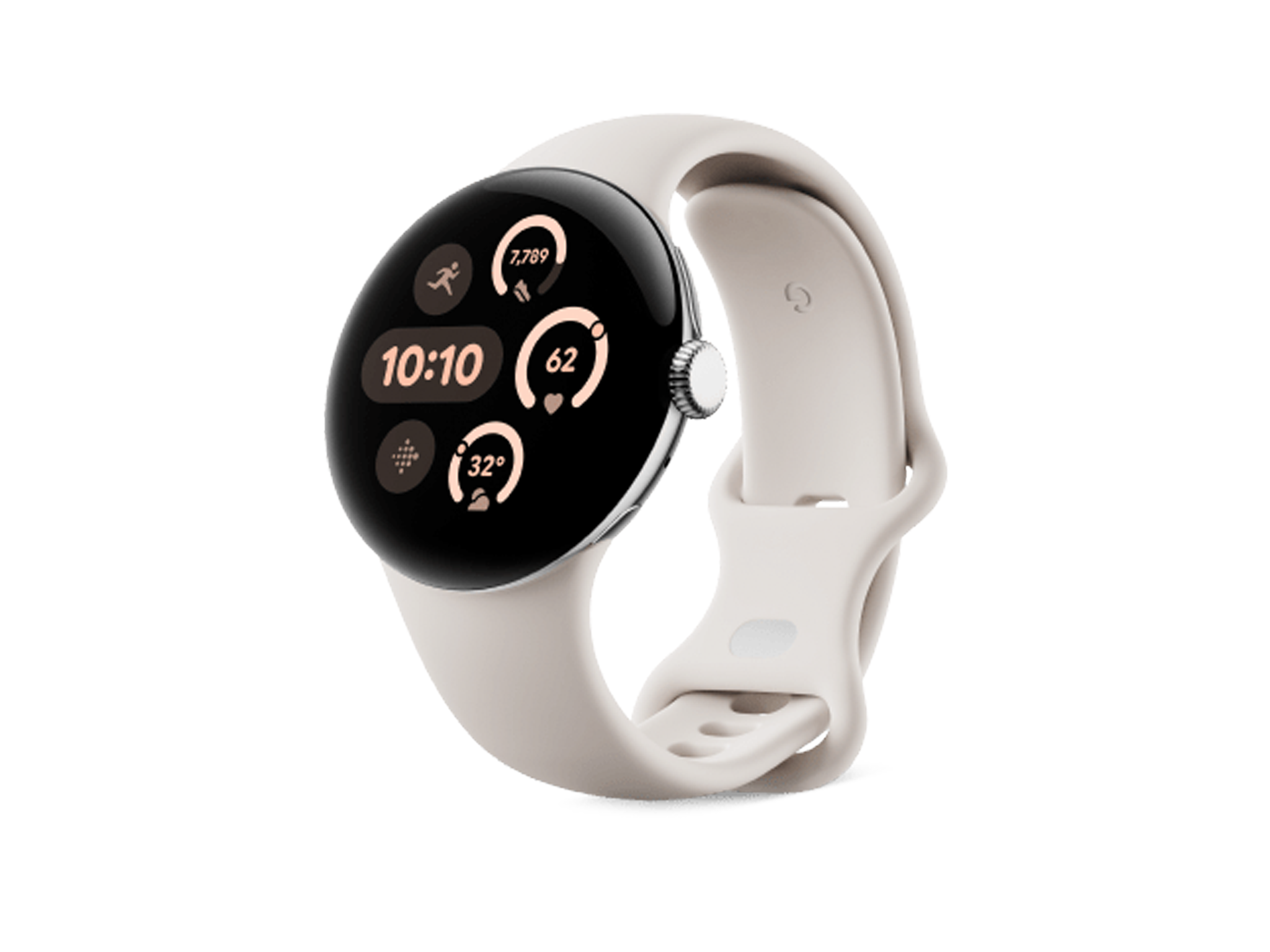
- Best: For a clear display
- Weight: 37g
- Battery life: 25 hours in GPS mode / 5 days in watch mode
- Screen size: 45mm
- Why we love it
- Huge screen time
- Access debit cards with Google Pay
- Has music apps like Spotify
- Take note
- Not compatible with Apple phones
The display on the Google Pixel 3 is clearer than on any other watch we tested. The screen has edge-to-edge glass, which we thought looked sleek and stylish and we were impressed by how our stats seemed to jump out at us, even in low lighting on early morning runs.
The display uses AMOLED technology to offer a variety of colours and crisp text. This makes it easier to read Google Maps directly from the wrist, which is ideal if you’ve gone for a long run and forgotten to create a proper route before you left. This watch allowed us to be spontaneous while helping us stay safe. Plus it integrated well with Google Assistant, so if we ever got into trouble we could say “Hey Google” and dictate a text message to send to someone in our contacts book. We may have also used this feature to tell our family that we’d be home in five minutes so they could put the kettle on. But you can also use it to check your calendar, asking when your next meeting is so you can plan how long to spend in the shower.
With so many smart features, it allowed us to leave our phone at home, so we found the Google Pixel 3 to be almost perfect as a running watch. The only reason we’re rating four stars instead of five is because it only works with Android phones, so Apple fans can’t use it.
OnePlus watch 2 nordic blue edition
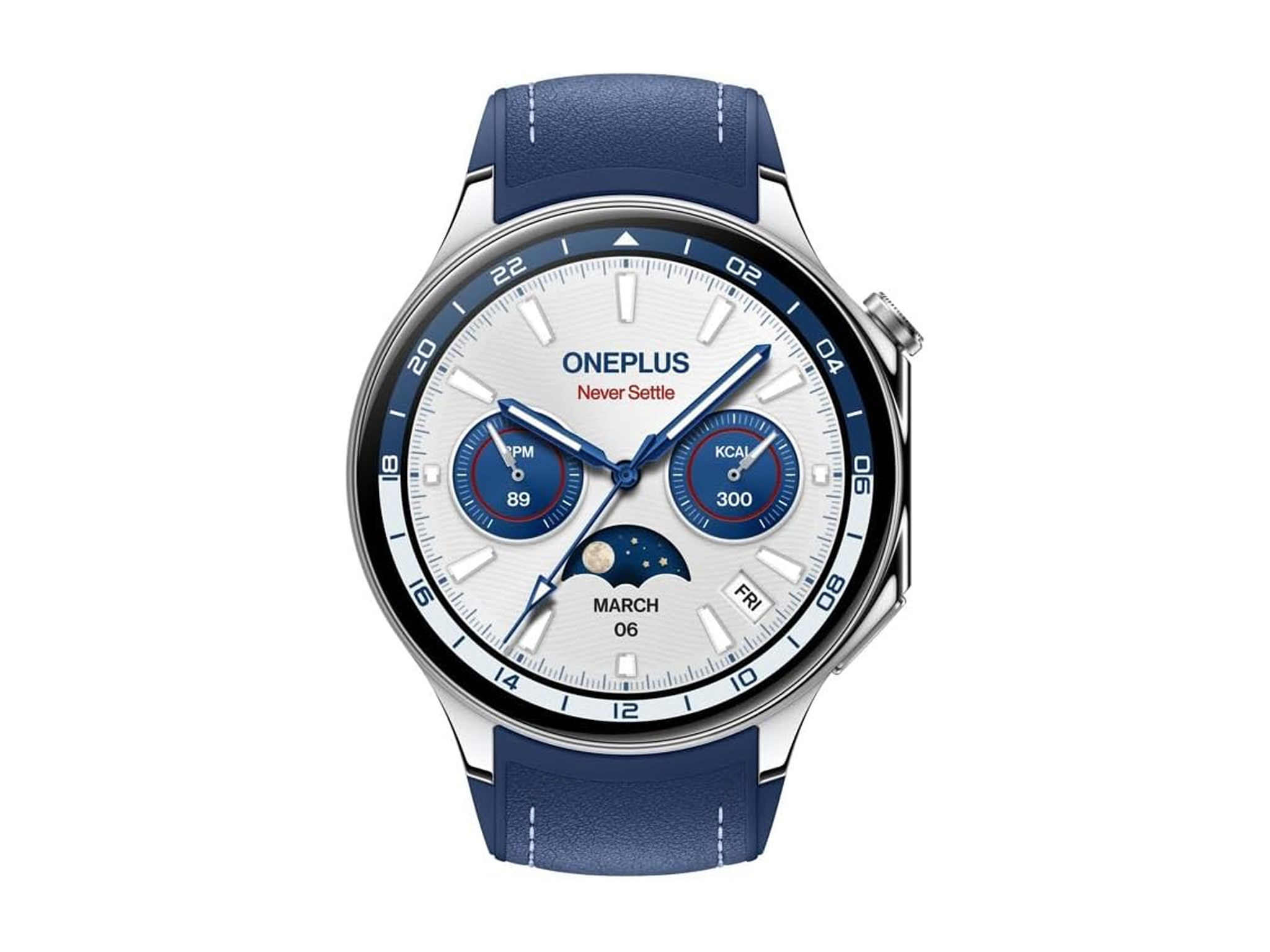
- Best: For durability
- Weight: 80g
- Battery life: 100 hours in smart mode / 12 days in watch mode
- Screen size: 36.3mm
- Why we love it
- Sleep tracking mode
- Google Assistant voice operation
- Stylish leather-finish strap
- Take note
- Only works with Android phones
- Heavy
Heatproof, cold-proof and with a scratch-resistant screen, this is the watch for you if you get a buzz from running over challenging terrains in all weathers. It’s also water-resistant to 5m, so you can use it for swimming and triathlons in summer and winter. But what’s unique about this watch is that even though it’s rugged and hardy, its resting clock face display and leather-finish strap look smart and sophisticated. It doesn’t scream “sports watch” even though you can use it to track more than 100 sports and sleep.
OnePlus boasts about this watch’s battery life so we put it to the test by seeing how long it could go without a charge and it racked up four days in sports tracking mode on a single charge, which is hugely impressive. This is a watch that you can wear 24/7 to track heart rate and blood oxygen levels at rest and when you work out, to give a clear snapshot of your overall health. We found it super interesting to track our sleep throughout a few nights, as learning how much light, deep and REM sleep we achieved made us want to go to bed earlier to see if we could get more.
The latest version of Wear OS by Google is built-in to the One Plus 2 watch, meaning it has Google Pay, Google Maps and Google Assistant for voice commands. We would give it a full five stars if it could be used by Apple phones and not just Android ones.
Garmin vivoactive 5
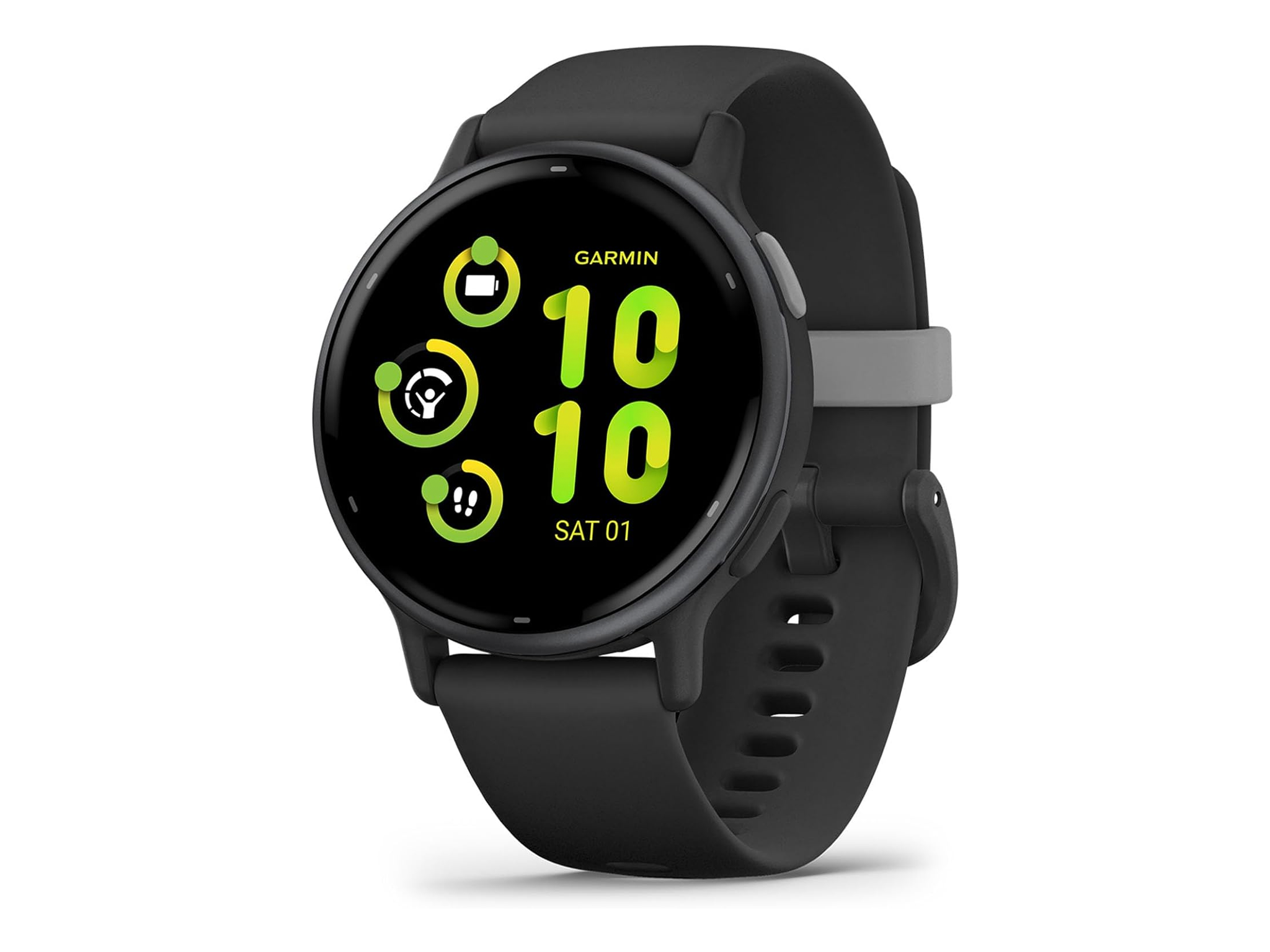
- Best: Value for money
- Weight: 36g
- Battery life: 21 hours sports mode / 21 days in watch mode
- Screen size: 30.4mm
- Why we love it
- Guided meditations
- Four colour options
- Improves recovery
- Take note
- Slightly feminine design
- Garmin Pay is hard to use
One of the most underrated ways to improve your fitness is to get more rest. While it sounds counter-intuitive, the more your body rests the better it can heal between training sessions and repair damaged muscles so that your next workout feels easier. Overtraining can be tempting for athletes of all abilities, especially if you have a specific goal in mind, but it can lead to fatigue, diminished performance and injury. The Garmin vivoactive 5 woke us up every morning with a morning report, showing us how well we’d slept and recovered. This helped us work out whether or not to take a rest day and motivated us to go to bed earlier to improve our recovery.
For less than £200, this watch offers all the standard running, swimming and activity tracking you’d expect from a sports watch with other features designed to enhance your health in a holistic way. We used it to track our energy levels throughout the day to see if switching the time of a run could benefit us. Guided meditations and breathwork activities were simple to follow and we could feel them calming us down and decreasing our heart rate. Weighing 36g, it’s lightweight and comfortable to wear, even when sleeping. While we tried the lilac colour, it’s also available in white, blue or black.
Our only gripe is that it lacks some smart functionalities – for example, it can’t be operated by voice commands and Garmin Pay can be glitchy.
Coros pace 3
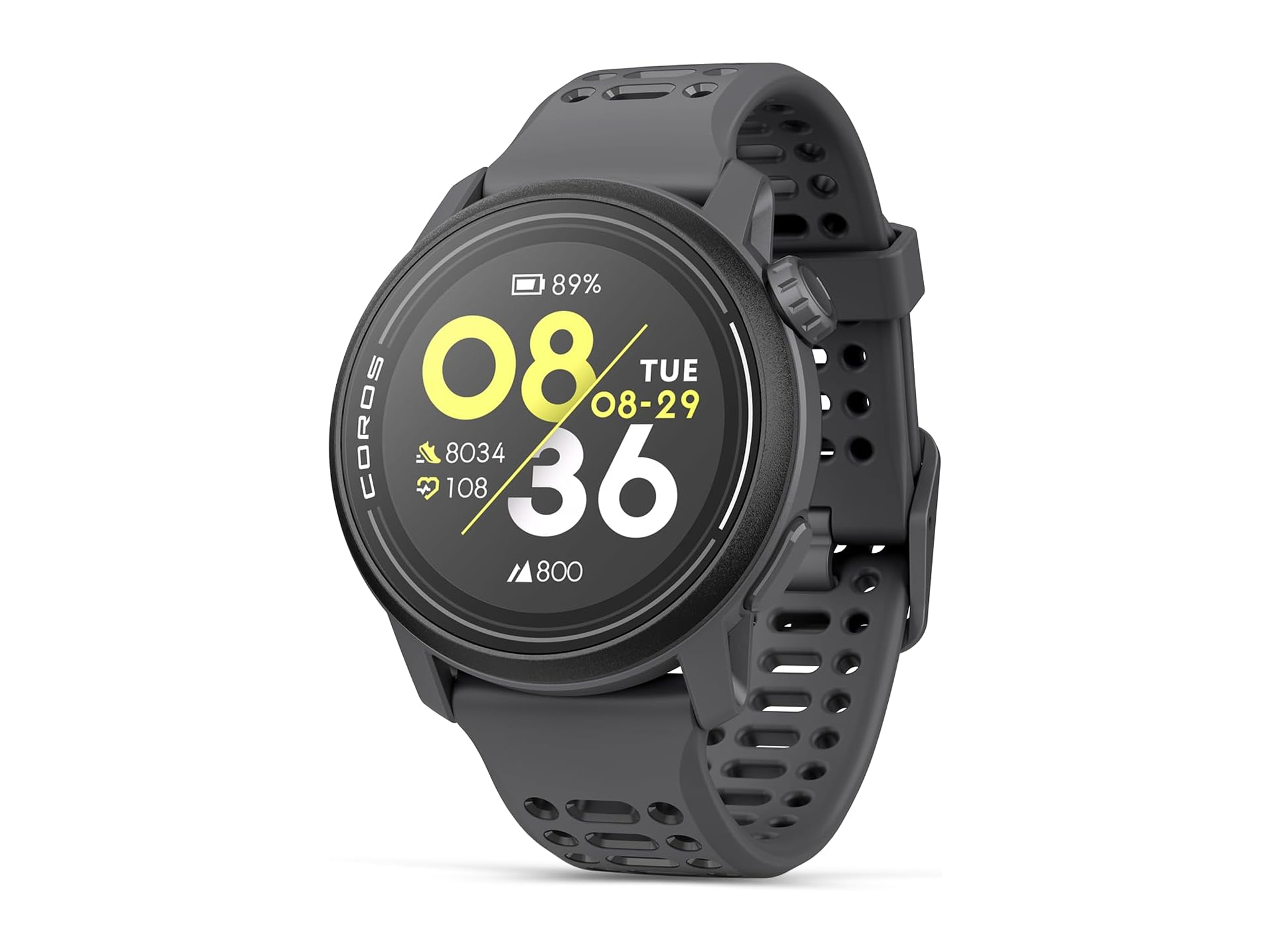
- Best: For battery life
- Weight: 29g
- Battery life: 38 hours/ 17 days
- Screen size: 30.5mm
- Why we love it
- Lightweight
- Comfortable
- Great technique insights
- Take note
- Not fully compatible with Apple
With a lightweight and slim design, we were very impressed by how comfortable the Coros pace 3 feels on the wrist. We recommend upgrading to a nylon watch strap, which not only feels secure but is better for recording accurate heart rate data and is 50 per cent lighter than the traditional silicone material that makes up most watch straps.
The watch provides insights into ground contact time, left-to-right balance and stride height, which is particularly beneficial if you’re recovering from an injury. Knowing your left-to-right balance will tell you if you land heavier on a specific side so you can adjust your technique before injuries occur or work your way back from being hurt sensibly. For the price, you couldn’t get better metrics. The Coros app works well on both Android and iPhone and connects to Strava and Training Peaks, so you can compete with, or get encouragement from, other runners and connect with coaches.
There are just two improvements we’d like to see. Firstly, it’s not compatible with Apple health. Secondly, Vitality members, who track activity points that earn them rewards on cinema and spa trips, may be disappointed that Vitality does not yet recognise Coros.
Put simply, this watch is our recommendation for anyone who is not a heavy Apple user or a Vitality member.
Running watches FAQs
How to choose the best running watch for you
Size is one of the factors to consider first. Some of the bigger GPS adventure watches that also track running can be quite large, so we’ve included some smaller options in our round-up list here.
Also, consider the type of running you’ll be doing. If it’s road running or casual running around the park, most of the affordable options will be perfectly adequate for you. But if you want to get into trail running or venture into the world of competitive running, we suggest going for a running watch that provides you with a few more statistics on which to measure yourself.
What do running watches do?
As we’ve already mentioned, running watches measure physical performance and activity primarily. They include features like heart rate monitoring, stride length, GPS tracking and oxygen level sensors to ensure you’re tracking your running progress. Where they differ from smartwatches is that they are less inclined to be focused on taking calls, messaging and social media, and instead look at providing updates on running performance to help you get the most out of your exercise sessions.
Can I leave my phone at home and use my running watch?
Yes – you can absolutely leave your phone at home, and when you’re back from your run, the Bluetooth on the watch will connect itself back up again and sync your data to the watch’s app on your phone. This tends to happen on most devices pretty automatically, and on many watches, you can also sync up music and wire-free headphones, which means you’ve got a pre-made running playlist stored in the memory of your running watch. Very useful!
The verdict: Running watches
The Garmin forerunner 55 tracks all the information you need to improve running for an excellent price. The large display size clearly shows your stats mid-run and it’s easy to sync the watch with both the Garmin connect app and Strava. For seasoned runners, we think the Polar PacerPro and the Garmin forerunner 955 offer an impressive array of insights to improve speed and endurance and are well worth investing in if you’re desperate for a PB.
To keep your running gear in tip-top shape check out our choice of the best running shoes for women
Voucher Codes







